Protein Powder vs Pre-Made Protein Shakes
Author:
Reviewed by:
(Certified Nutritionist, S&C specialist, M.Sc.Eng. Biotechnology)
Unlock your full potential by engaging with our experts and community! Have questions about your fitness journey or looking for expert advice on weightlifting techniques? Don’t hesitate — leave a comment below and Oleksandr Maksymenko will provide a personalized answer and insights to help you reach your goals.
Torokhtiy is reader-supported. Some links are affiliate links, and we may earn a commission at no extra cost to you. See our disclosure page for details.
When it comes to building muscle and recovering after a workout, protein is an essential nutrient. Protein powders and ready-to-drink protein shakes are two popular types of high quality protein supplements, but they are not always equal. In this article, we will compare protein powder vs protein shake and guide how to select the best protein supplement for your needs.
Protein powder vs protein shake differ in the form of the supplement (powder or ready-to-drink), the type of protein used in these products, the taste, and the ratio of the price per serving. Both are high-quality protein supplements, which help in building muscle, as well as promoting overall health and well-being.
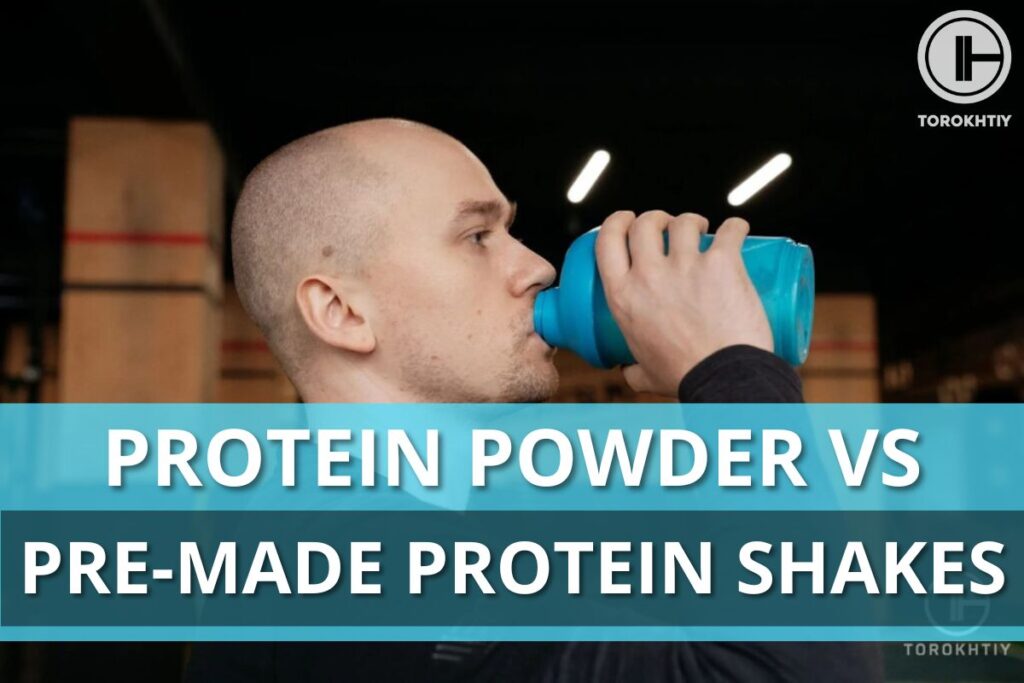
Pre-Made Protein Shakes vs Powder: What are the Differences?
Although both are popular ways to increase protein intake, it is important to understand the key differences between them in order to choose the best option for your needs.
Pre-made protein shakes are ready-to-drink beverages that are typically sold in single-serving bottles or paper boxes. They often contain a mix of proteins, such as milk protein concentrate or isolate, which includes both fractions of milk proteins: whey and casein, or isolated fractions of whey proteins and casein.
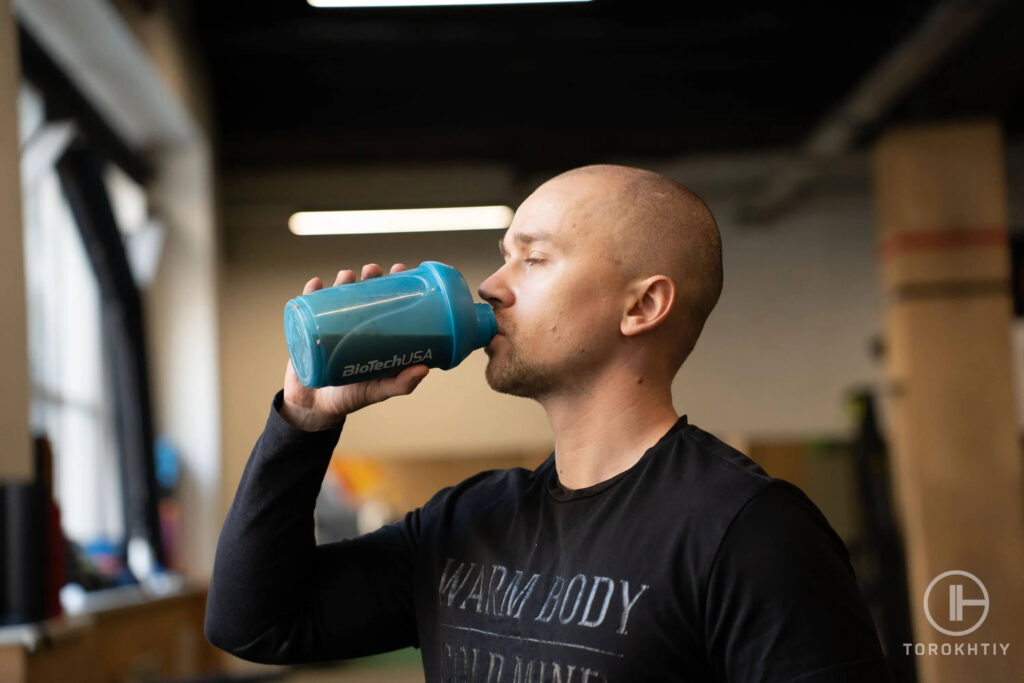
They’re usually high in protein per serving, fortified with vitamins and minerals (including plenty of calcium) and can be high in fiber. There are few or significant amounts of carbohydrates and fats in such drinks.
To maintain a relatively low calorie content and reduce the consumption of added sugar, such drinks are often sweetened with safe artificial sweeteners: sucralose and acesulfame potassium. These shakes are convenient and easy to use and typically require no preparation.
Protein powder, on the other hand, is a dry powder that is typically sold in containers. It can be either separate types of proteins (only whey, or only casein, or only soy), or a mixture of different proteins in one product.
For improving taste, proteins can contain both natural sweeteners (such as coconut sugar) and non-nutritive sweeteners like sucralose and / or acesulfame potassium, which contain few to no calories.
Usually these powders can be mixed with water or milk to create a shake, or added to food, such as oatmeal or yogurt. Protein powder is generally considered to be more versatile than pre-made protein shakes, as it can be used in a variety of ways. However, it requires preparation and measuring to get the desired amount of protein.
Pre-made protein shakes vs powder in terms of nutrition. Both can provide high-quality protein and help to support muscle growth and recovery. However, the nutritional content can vary between brands and flavors, so it’s important to read the label carefully to compare ingredients and nutritional information.
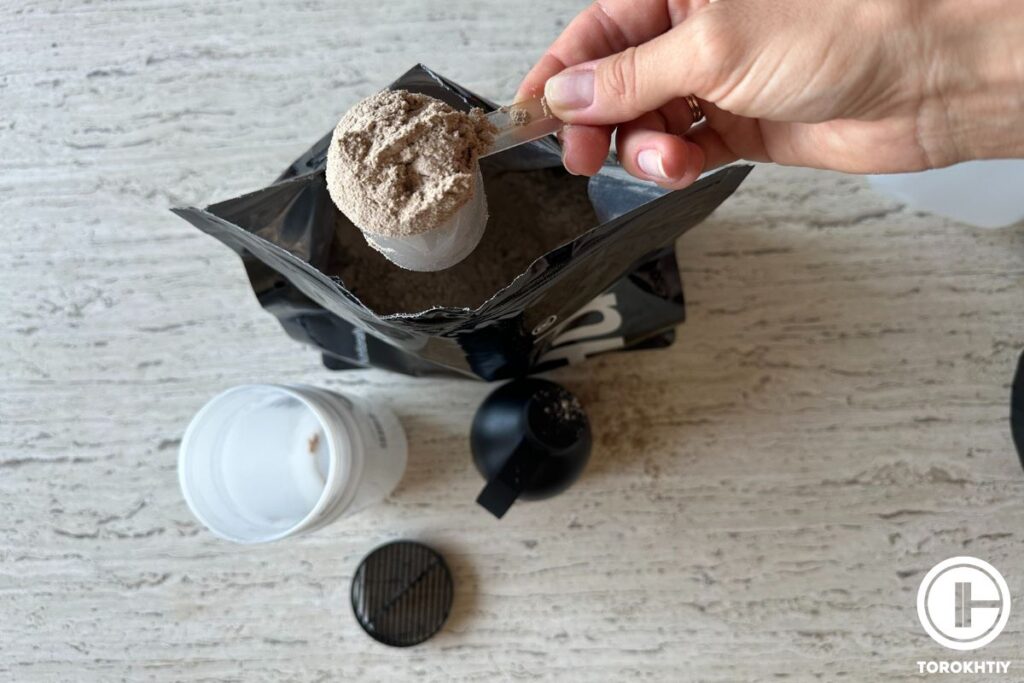
Protein shakes and protein powder can provide high-quality protein but with different conveniences, costs and variations. Protein powder is a more versatile option that can be used in a variety of ways and is generally less expensive per serving.
It also offers more flexibility, because we can add any fruit, peanut butter and other ingredients to our shake. We can also make a shake on both water and milk, including plant-based milk. We have the opportunity to influence the calorie content and composition of macronutrients in a shake made from protein powder.
On the other hand, ready-to-drink shakes in addition to protein usually contain a significant amount of vitamins and minerals, and therefore are better suited as a meal replacement. For example, a serving of regular protein powder contains 100-150 mg of calcium, while one bottle of ready-to-drink shake can contain 500 mg and even 650 mg of calcium.
In general, they offer convenience and can be easy to grab and go, although it comes down to personal preference and what works best for your lifestyle.
Transparent Labs Whey Protein Isolate
- Serving Size: 32.96 grams
- Price Per Serving: ~$1.8
- Protein Percent Of Weight (%): 85%
- Proteins: 28 grams
- Carbohydrates: 1 gram (depends on flavor)
- Fat: 0.5 gram (French Vanilla only)
- Added Sugar: 0 gram
- Calories Per Serving: 120
- Recommended By Athletes: Hafþór Júlíus Björnsson, Terron Beckham, Paul Sklar
I recommend Transparent Labs Grass-Fed Whey Protein Isolate and there are many reasons for this: it contains only 100% protein isolate (not a mix of concentrate and isolate), a whooping 28 grams of protein per serving and zero grams of fat. This product has versatile macro breakdown and this is why it’s suitable for any goal.
Premier Protein Shake
- Suitable for Vegans: No
- Protein per Serving: 30 grams
- Carbs per Serving: 4 grams
- Dietary Fiber per Serving: 1 gram
- Added Sugars per Serving: 0 grams
- Fats per Serving: 3 grams
- Calories per Serving: 160 KCAL
- Servings per Package: 15
- Serving Size: 11.5 fl oz
- Price per Serving: $1.90 (Cookies and Cream)
- Company Founded: 1997
- Recommended by Athletes: Dietitian Hannah, Erin Antoniak, Austin Telenko
Talking about protein shakes, I would like to recommend the Premier Protein Shake in Chocolate flavor. It is a great option for those looking for a high-protein ready-to-drink shake with zero added sugar. The shake has 30 grams of protein and only 5 grams of carbs per serving, making it a versatile option for any goal: build muscle or lose weight.
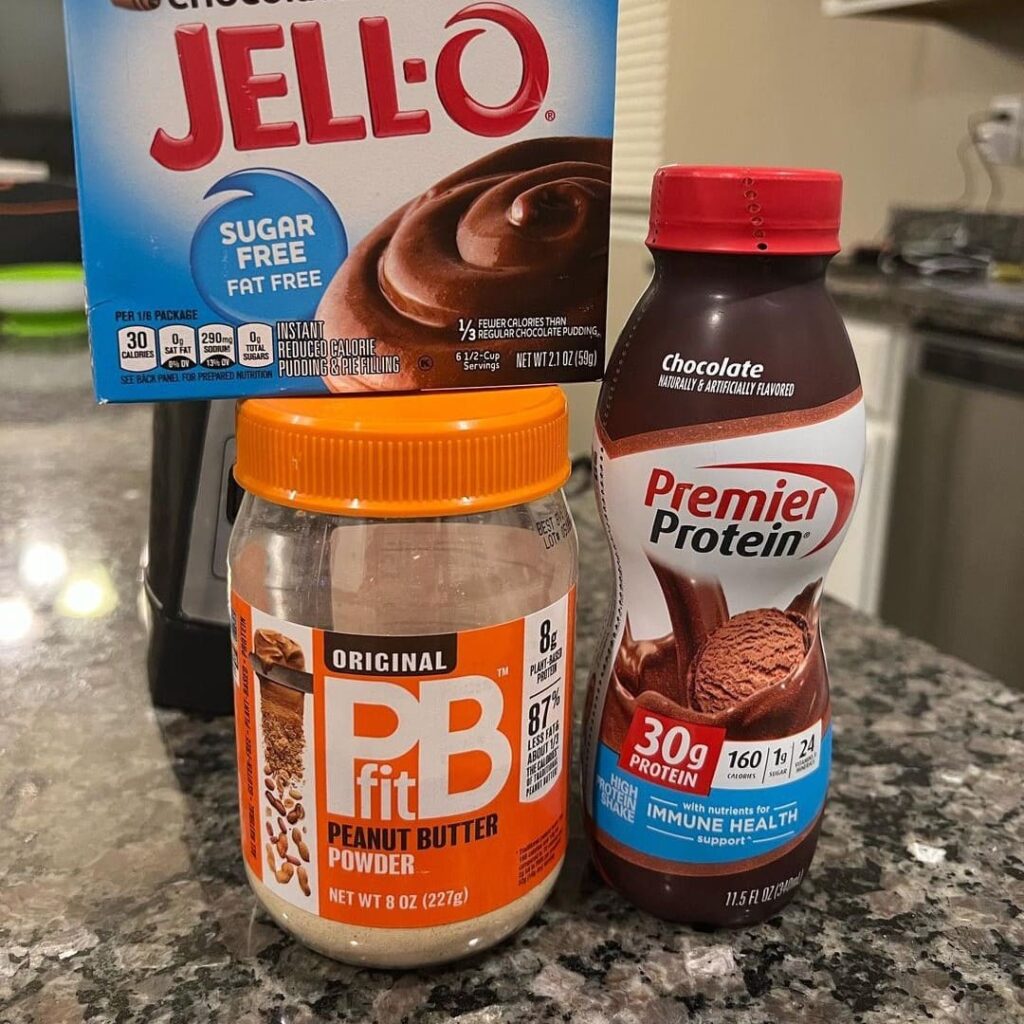
A whole bottle has only 160 kcal, as well as 5 g of fiber and a set of vitamins and minerals. And this is exactly the case when a serving contains a whopping 650 mg of calcium!
The chocolate flavor is rich and satisfying, and the shake is easy to mix and drink on the go. Just keep in mind that some people may find the taste to be too sweet. Overall, it is a great shake for those looking for a convenient and tasty protein supplement with a set of vitamins and minerals.
Protein Shakes vs Protein Powder: How are They Processed?
The processing of pre-made protein shakes and protein powder can vary depending on the type of protein used and the manufacturer’s methods.
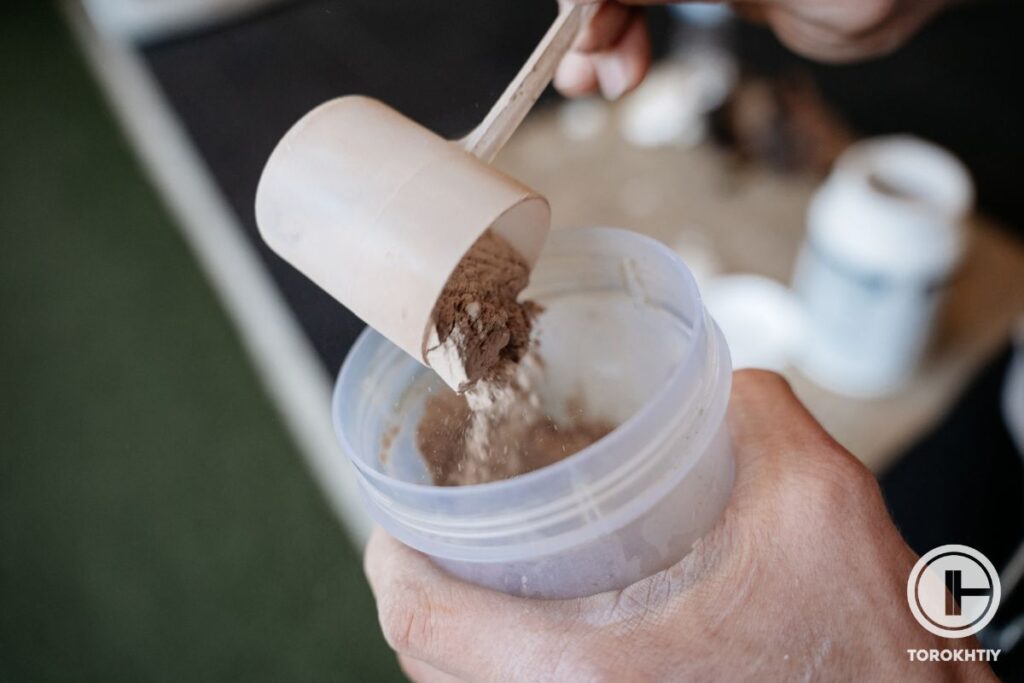
Pre-made protein shakes are typically made by blending various ingredients, including dry protein powder, inulin (as a source of fiber), sweeteners, plus vitamin and mineral blend, and of course water. The mixture is blended until smooth and tastes good. The resulting shake is packaged into bottles and ready to be used as a convenient source of high-quality protein.
Protein powder, on the other hand, is typically made by extracting protein from a source such as milk, eggs, peas or other sources. The protein is then purified and concentrated through a process called microfiltration, ultrafiltration and other techniques.
This process removes all or most of the fat, lactose, and other constituents of the raw source from the protein, leaving a concentrated form of protein. The product is then dried in powdered form and packaged. Many protein powders may also be flavored and sweetened during the manufacturing process.
Average Macronutrient Content of Pre-Made Protein Shakes vs Powder
In general, a serving of ready-to-drink shake and a serving of protein powder contain approximately the same amount of protein – 25-30 g. However, in terms of the cost of the serving and the amount of protein for your money, protein shakes are more expensive, even if you buy a pack of 12 bottles.
On the other hand, protein powders are usually not enriched with vitamins and minerals, so the higher price for ready-to-drink shakes is generally justified.
To compare products by key characteristics per serving, see the table.
| Product | Protein | Carbs | Fats | Calories content | Calcium | Price per serving |
|---|---|---|---|---|---|---|
| Ready-to-drink shake | 24-30 g | 4-8 g | 2-5 g | 140-170 kcal | 500-650 mg | $2-2.5 |
| Protein Powder | 20-30 g | 0-4 g | 0-2 g | 100-130 kcal | 100-150 mg | $1.2-2 |
As you can see, a standard serving of ready-to-drink shake contains more carbohydrates and fats, and accordingly, the calorie content is higher. You get 140-170 kcal from a 325-340 ml bottle.
By the way, a serving of the ProMix Protein recommended above costs closer to the lower price range of protein powders, which makes this product a great option for your budget.
Pros And Cons of Protein Powder
Positives:
Could be better:
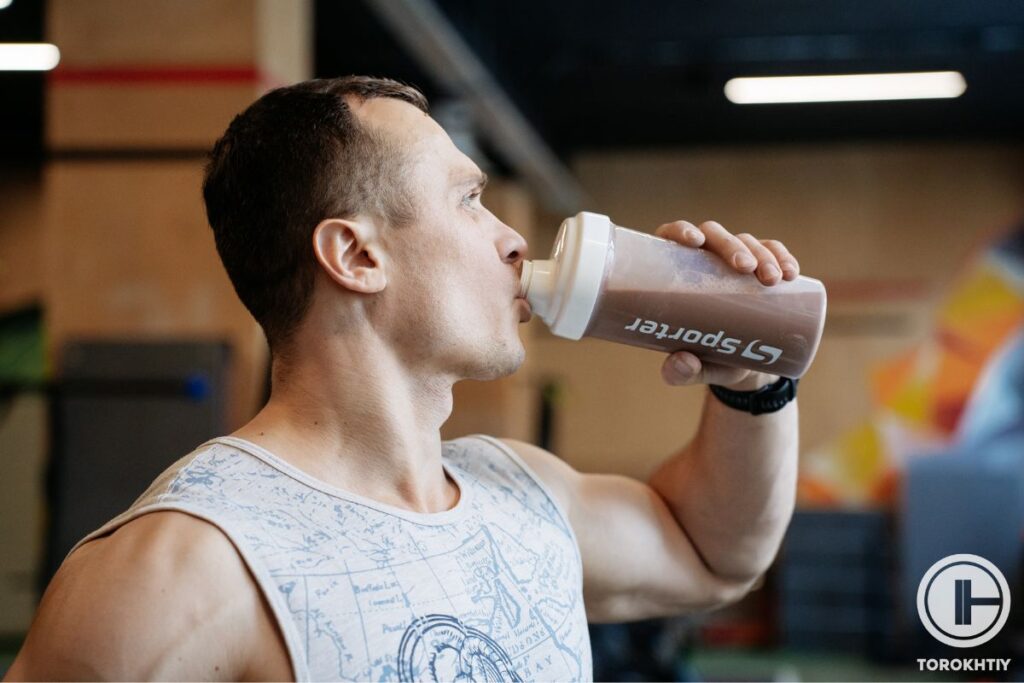
Pros And Cons of Protein Shake
Positives:
Could be better:
FAQ
Is A Protein Shake The Same As A Protein Powder?
They are similar, but not the same. A protein powder is a dietary supplement in powder form, while a protein shake is a drink made by mixing protein powder with liquid and other ingredients. So, a protein shake is a type of protein supplement, but not all protein supplements come in shake form.
Can I Replace Protein With Protein Powder?
No, protein powder can be used as a supplement, but it should not replace whole foods that contain protein. Whole foods provide important nutrients besides protein, and it’s important to maintain a balanced diet. It’s best to get nutrients from whole food sources and use supplements only when needed.
Can I Use Protein Powder To Make A Protein Shake?
Yes, protein powder is a key ingredient used to make protein shakes. You can mix the powder with liquids like water or milk, and add other ingredients like fruits, peanut butter, oats and others.
Conclusion
Protein shakes and protein powder can provide high-quality protein but with different protein types, conveniences, costs and tastes. Protein powder is a more versatile option that can be used in a variety of ways, and is less expensive.
On the other hand, ready-to-drink protein shakes offer convenience, usually contain a blend of vitamins and minerals, and can be easy to grab and go.
We hope this article helps you make an informed decision about protein shake vs protein powder. You can as well share this article with people having difficulty in choosing between protein powder or protein shake. Please share your thoughts and ask any questions you may have in the comments below.
Also read:
- Putting Oats in Protein Shake
- Whey Protein With Coffee
- How To Make A Protein Shake Thicker
- Whey Protein Shake Calories
- Is Two Scoops of Protein Too Much
- Protein vs Bcaa
- Plant vs Whey Protein
- What Is Condsidered Low Carb Protein Powder
References:
- Milk Protein Concentrate // ScienceDirect: https://www.sciencedirect.com/topics/agricultural-and-biological-sciences/milk-protein-concentrate
- Low-Calorie Sweeteners // The President and Fellows of Harvard College: https://www.hsph.harvard.edu/nutritionsource/healthy-drinks/artificial-sweeteners/
- Protein Purification Methods // Comis.Med: https://cutt.ly/o9DfHWz
- Photos by Torokhtiy Media Team.
Why Trust Us?
With over 20 years in Olympic weightlifting, strength training, nutrition coaching, and general fitness our team does its best to provide the audience with ultimate support and meet the needs and requirements of advanced athletes and professional lifters, as well as people who strive to open new opportunities and develop their physical capabilities with us.
By trusting the recommendations of our certified experts in coaching, nutrition, and sports training programming, as well as scientific consultants, and physiotherapists, we provide you with thorough, well-considered, and scientifically proven content. All the information given in the articles concerning workout programming, separate exercises, and athletic performance, in general, is based on verified data.
The product testing process is described in more detail here.
Author: Oleksandr Maksymenko
Certified Sports Nutritionist,
MSc Sports Dietetics
Specializing in: Weight management, Fitness / Sports nutrition
Oleksandr is a professional fitness nutritionist certified by the Fitness Professional Association (FPA). He follows the principles of evidence-based dietetics and fosters a healthy relationship with food in his clients, ensuring there are no strict prohibitions on their favorite foods or frequent lapses. His primary goal is not only to achieve results for you but also to sustain them over the long term, all while enjoying tasty and delicious food.
Reviewed by: Jacek Szymanowski
Certified Nutritionist,
M.Sc.Eng. Biotechnology
Performance architect,
Strength and Conditioning Specialist
With over 30 years of fighting experience, specialization in nutrition coaching for athletes, and expertise in metabolic health and dietary strategies, Jacek offers a comprehensive approach to optimizing your performance and well-being. Backed by a Master of Science degree in Biotechnology, Jacek remains at the forefront of scientific advancements, ensuring that his coaching is always evidence-based and up-to-date.




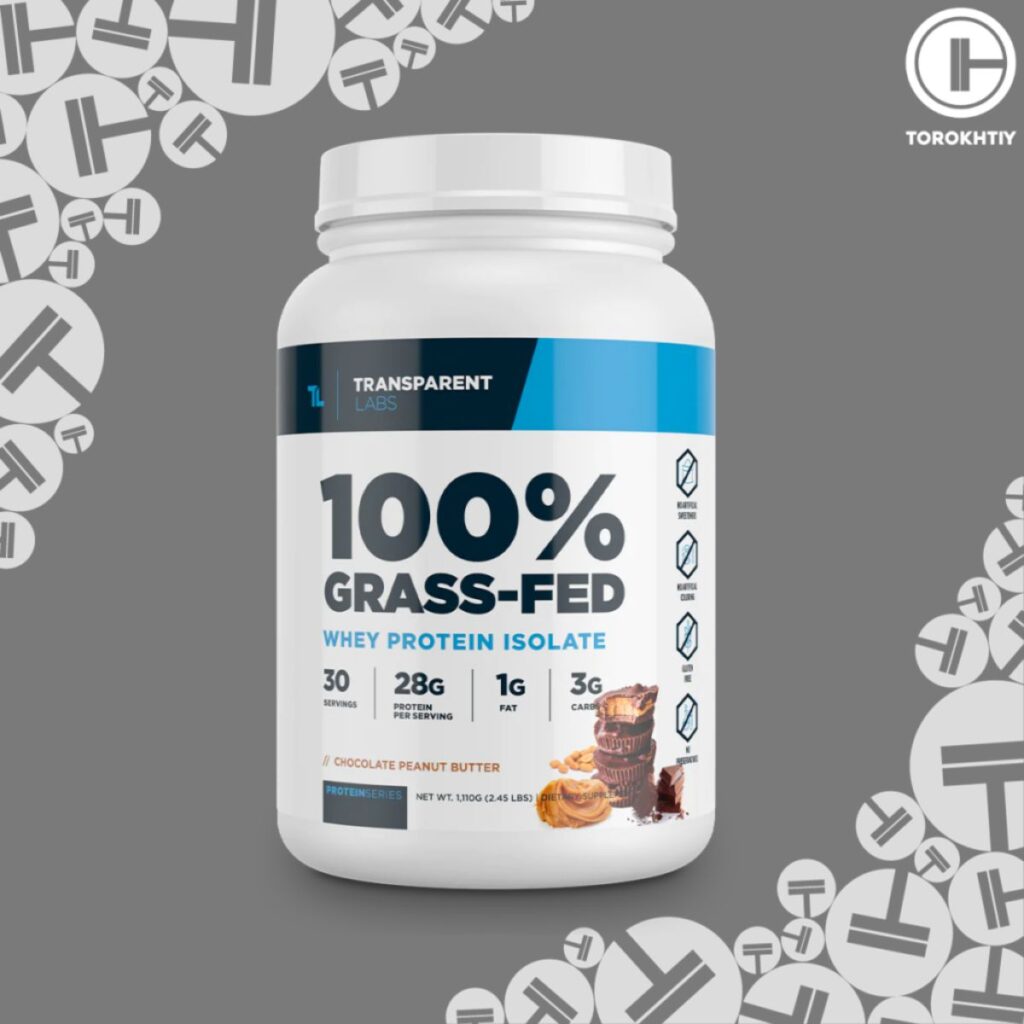
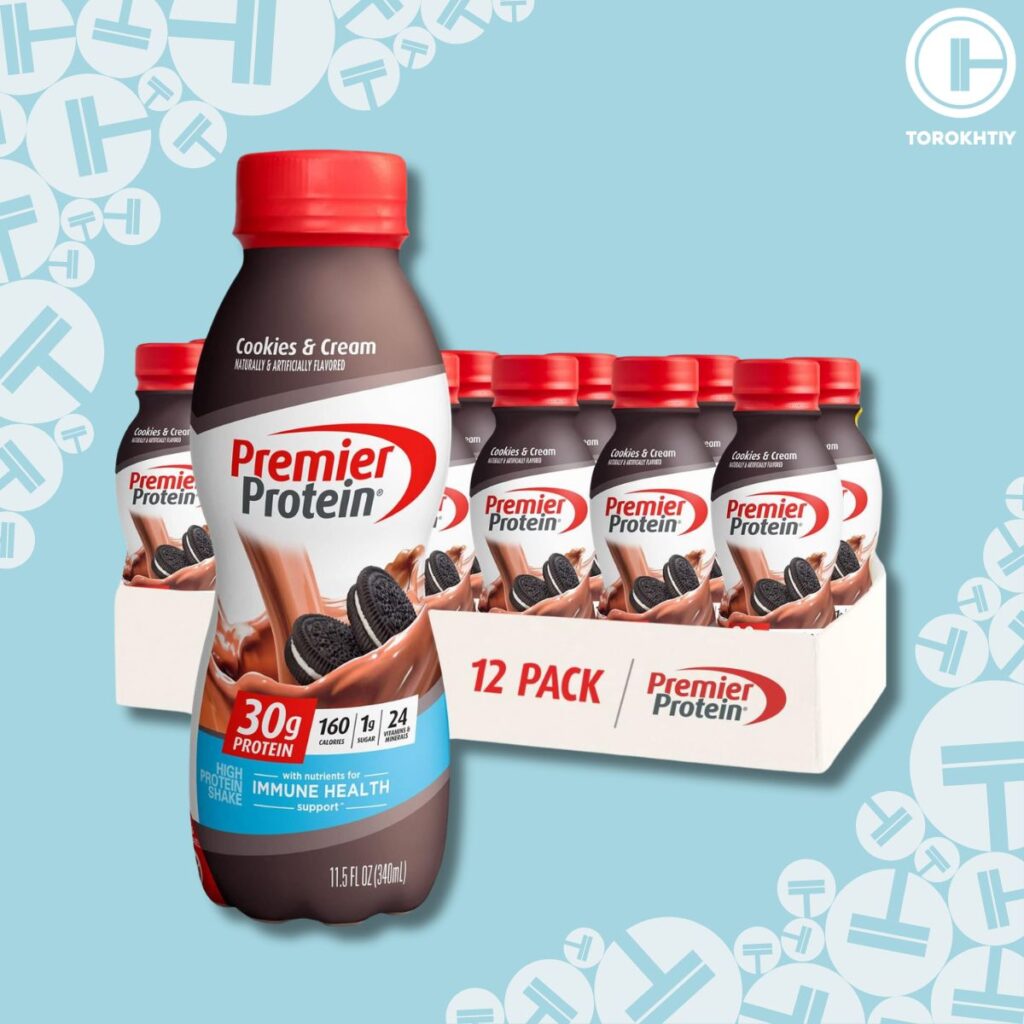
Last paragraph of your article concludes that you compared muscle milk to premier protein. No part of his article is about muscle milk. I believe the intent was that you compared Protein Powder vs Pre-Made Protein Shakes. The statement you made feels as though this was an advertisement and not an article.
Ben, thank you for your comment, we already fixed the Conclusion!